-
 Bitcoin
Bitcoin $94,153.1413
-0.09% -
 Ethereum
Ethereum $1,792.6301
-0.87% -
 Tether USDt
Tether USDt $1.0003
-0.01% -
 XRP
XRP $2.2772
4.65% -
 BNB
BNB $604.6688
0.45% -
 Solana
Solana $149.3096
1.12% -
 USDC
USDC $0.9999
-0.01% -
 Dogecoin
Dogecoin $0.1796
0.13% -
 Cardano
Cardano $0.7148
1.73% -
 TRON
TRON $0.2446
-3.12% -
 Sui
Sui $3.5773
-0.25% -
 Chainlink
Chainlink $14.9680
0.94% -
 Avalanche
Avalanche $21.9852
-2.33% -
 Stellar
Stellar $0.2891
0.33% -
 UNUS SED LEO
UNUS SED LEO $9.0783
1.49% -
 Toncoin
Toncoin $3.2788
-1.34% -
 Hedera
Hedera $0.1937
1.80% -
 Shiba Inu
Shiba Inu $0.0...01358
-1.83% -
 Bitcoin Cash
Bitcoin Cash $349.9181
-1.11% -
 Polkadot
Polkadot $4.1437
-0.90% -
 Litecoin
Litecoin $85.8754
-0.01% -
 Hyperliquid
Hyperliquid $17.8637
0.56% -
 Dai
Dai $1.0001
0.01% -
 Bitget Token
Bitget Token $4.3061
-2.17% -
 Monero
Monero $266.8633
15.28% -
 Ethena USDe
Ethena USDe $0.9996
0.01% -
 Pi
Pi $0.6215
-3.52% -
 Pepe
Pepe $0.0...08864
-2.26% -
 Uniswap
Uniswap $5.4644
-5.26% -
 Aptos
Aptos $5.4797
-1.21%
How to trade KNC coins to others
KNC serves as the governance token within the Kyber Network, empowering holders to influence its direction through voting on proposed changes and participating in network decision-making.
Dec 02, 2024 at 10:02 am

Step-by-Step Guide to Trading KNC Coins: A Comprehensive Tutorial
Understanding Kyber Network Crystal (KNC)
- What is Kyber Network Crystal (KNC)?
Kyber Network Crystal (KNC) is the native token of the Kyber Network, a decentralized liquidity protocol that facilitates instant and secure token swaps in the blockchain ecosystem. KNC serves as a governance token within the network, providing holders with voting power on governance proposals and enabling them to participate in the network's decision-making processes.
- Key Features of KNC:
- Governance: KNC holders have the power to influence the direction of the Kyber Network through voting on proposed changes.
- Staking: KNC tokens can be staked by liquidity providers to earn rewards and boost their earnings.
- Network Fees: Fees generated by the Kyber Network protocol are distributed among KNC holders, incentivizing them to maintain the stability of the system.
- Liquidity: KNC tokens provide liquidity to the Kyber Network, allowing for the seamless conversion of various cryptocurrencies.
Step-by-Step Trading Guide
- Prerequisites:
- Create a KNC-compatible cryptocurrency wallet, such as Metamask or Trust Wallet.
- Fund your wallet with KNC tokens or other supported cryptocurrencies.
- Determine a reputable exchange platform for trading KNC.
Step 1: Choose a Trading Platform
Select a cryptocurrency exchange that provides reliable KNC trading services. Consider factors such as trading fees, liquidity, security measures, and supported payment methods. Some popular options include Coinbase, Binance, and KuCoin.
Step 2: Create an Account and Verify Identity
Register an account on your chosen exchange and complete the identity verification process required by most platforms. This involves providing personal information and uploading supporting documents to ensure compliance with regulatory standards.
Step 3: Fund Your Trading Account
Deposit KNC tokens or other cryptocurrencies into your trading account from your personal wallet. Choose a deposit method that aligns with your preferences and consider associated fees.
Step 4: Place a Trade Order
Navigate to the KNC trading page on the exchange. Specify the type of order you wish to place, such as a market order, limit order, or stop-limit order. Input the desired amount of KNC to trade and adjust any additional parameters.
Step 5: Review and Execute Trade
Carefully review the details of your trade order, including the price, quantity, and order type. If everything is in order, confirm the transaction to complete the trade.
Step 6: Monitor and Manage Trades
Once your trade is executed, it is recommended to monitor its performance and make any necessary adjustments. Most exchanges offer real-time trade tracking and analysis tools to help you stay informed.
Step 7: Withdraw and Store KNC
After completing your trades, you may choose to withdraw your KNC tokens and store them in a secure personal wallet. Select the withdrawal option on the exchange platform and provide your wallet address.
Additional Considerations
- Trading Fees:
Consider the trading fees levied by the exchange platform and factor them into your trading strategy to minimize costs.
- Market Volatility:
The cryptocurrency market is subject to volatility, which can significantly impact the price of KNC. Monitor market fluctuations and adjust your trading accordingly to mitigate risks.
- Security:
Ensure the security of your KNC holdings by storing them in a reputable wallet and implementing appropriate security measures, such as two-factor authentication and strong passwords.
- Understanding Order Types:
Familiarize yourself with the different types of trade orders available on the exchange platform, such as market orders, limit orders, and stop-limit orders. Each order type has its own characteristics and advantages depending on the trading strategy.
- Market Research and Due Diligence:
Conduct thorough market research and due diligence before making trades to better understand the factors influencing the price of KNC. Analyze historical price charts, news events, and technical indicators to make informed trading decisions.
- Risk Management:
Implement a sound risk management strategy to minimize potential losses. Establish clear entry and exit points for trades, set stop-loss orders to limit potential downside, and avoid excessive leverage.
Disclaimer:info@kdj.com
The information provided is not trading advice. kdj.com does not assume any responsibility for any investments made based on the information provided in this article. Cryptocurrencies are highly volatile and it is highly recommended that you invest with caution after thorough research!
If you believe that the content used on this website infringes your copyright, please contact us immediately (info@kdj.com) and we will delete it promptly.
- Bitcoin (BTC) MVRV Ratio Faces Resistance At 365 SMA — What This Means For Price
- 2025-04-28 12:20:13
- IMF Confirms El Salvador Has Halted Bitcoin Purchases With Public Funds
- 2025-04-28 12:20:13
- Cardano (ADA) and Mutuum Finance (MUTM) Could Hit the $1 Mark Before Dogecoin (DOGE)
- 2025-04-28 12:15:13
- Cardano (ADA) price has been steadily moving higher this week, despite hiccups in a volatile market.
- 2025-04-28 12:15:13
- XRP Price Prediction: Renewed Bullish Interest Following a Series of Major Developments
- 2025-04-28 12:10:12
- Renewed Bullish Interest in XRP as U.S. Fed's New Policy Shift Opens Opportunities for RLUSD
- 2025-04-28 12:10:12
Related knowledge
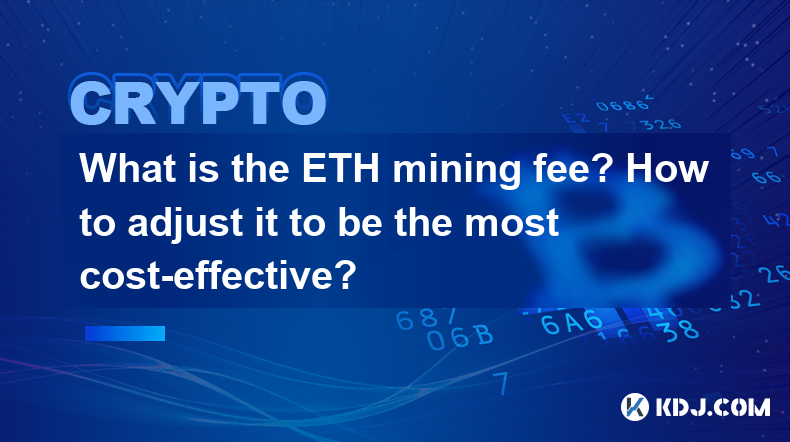
What is the ETH mining fee? How to adjust it to be the most cost-effective?
Apr 28,2025 at 11:56am
The ETH mining fee, also known as the gas fee, is a critical component of the Ethereum network's transaction processing system. This fee is paid by users to miners for including their transactions in the blockchain. Understanding and adjusting this fee can significantly impact the cost-effectiveness of your Ethereum transactions. What is the ETH Mining ...
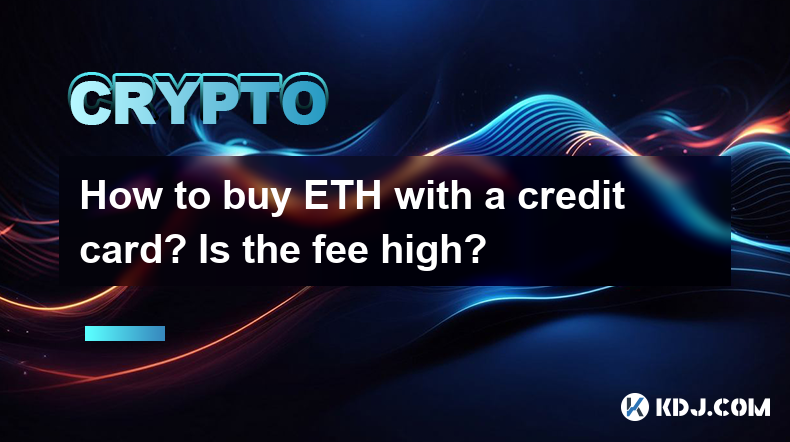
How to buy ETH with a credit card? Is the fee high?
Apr 28,2025 at 12:28pm
How to buy ETH with a credit card? Is the fee high? Buying Ethereum (ETH) with a credit card is a straightforward process that allows you to quickly acquire the cryptocurrency. However, it's important to be aware of the fees involved, as they can be higher compared to other payment methods. In this article, we will walk you through the steps to purchase...
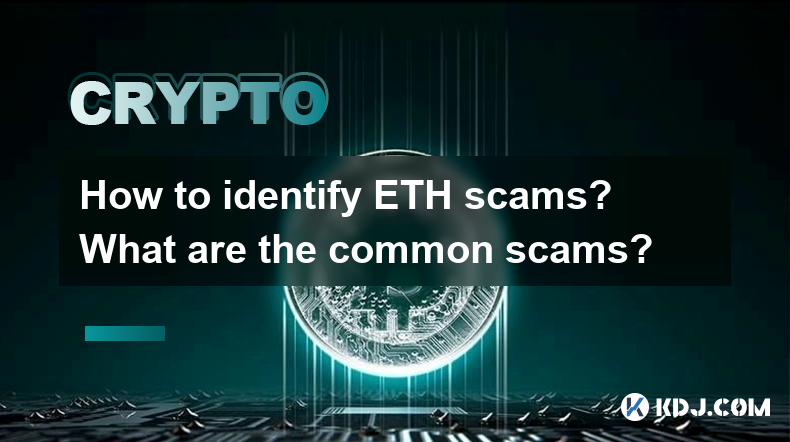
How to identify ETH scams? What are the common scams?
Apr 28,2025 at 12:14pm
Identifying Ethereum (ETH) scams is crucial for anyone involved in the cryptocurrency space. With the rise of digital currencies, the number of scams has also increased, making it essential for investors and users to be vigilant. This article will guide you through the process of identifying ETH scams and highlight the most common types of scams you mig...
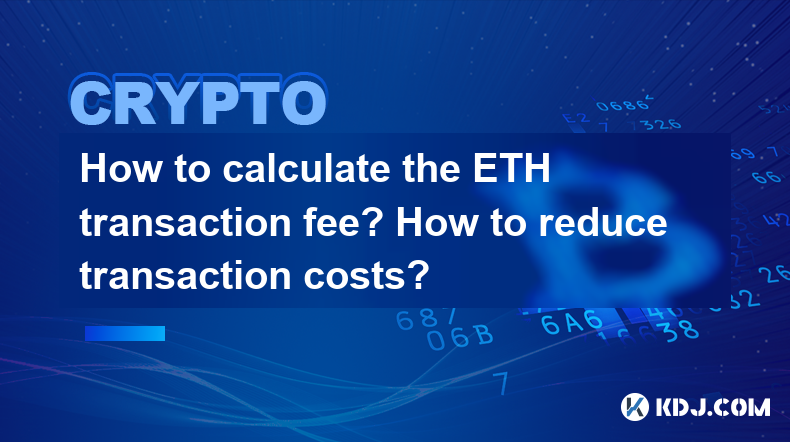
How to calculate the ETH transaction fee? How to reduce transaction costs?
Apr 28,2025 at 12:42pm
Understanding and calculating Ethereum (ETH) transaction fees, as well as finding ways to reduce these costs, are crucial for anyone involved in the cryptocurrency space. Transaction fees on the Ethereum network are influenced by several factors including gas prices, gas limits, and network congestion. In this article, we will delve into the mechanics o...
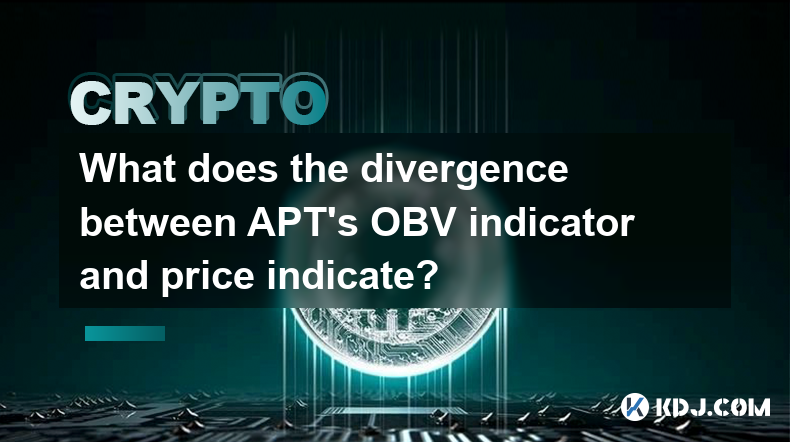
What does the divergence between APT's OBV indicator and price indicate?
Apr 25,2025 at 01:28pm
What does the divergence between APT's OBV indicator and price indicate? The divergence between the On-Balance Volume (OBV) indicator and the price of APT (Aptos) can provide significant insights into the potential future movements of the cryptocurrency. Understanding this divergence is crucial for traders and investors looking to make informed decision...
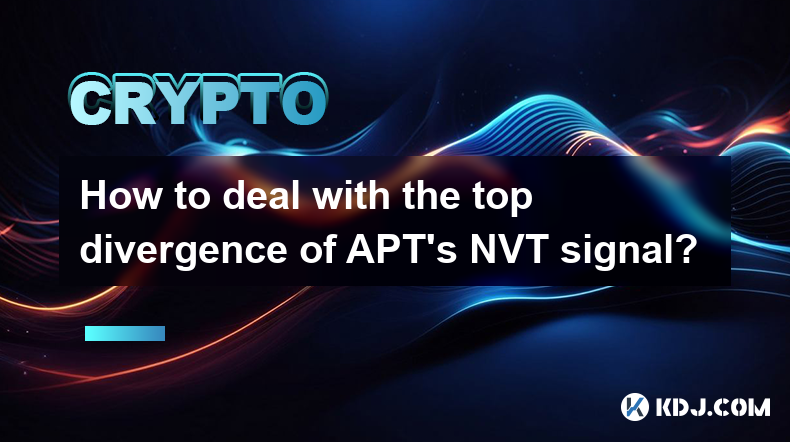
How to deal with the top divergence of APT's NVT signal?
Apr 26,2025 at 04:43am
The NVT (Network Value to Transactions) ratio is a fundamental metric used in the cryptocurrency space to assess the value of a cryptocurrency relative to the on-chain transaction volume. For the cryptocurrency APT, understanding and dealing with the top divergence of its NVT signal is crucial for investors and traders. This article will delve into the ...

What is the ETH mining fee? How to adjust it to be the most cost-effective?
Apr 28,2025 at 11:56am
The ETH mining fee, also known as the gas fee, is a critical component of the Ethereum network's transaction processing system. This fee is paid by users to miners for including their transactions in the blockchain. Understanding and adjusting this fee can significantly impact the cost-effectiveness of your Ethereum transactions. What is the ETH Mining ...

How to buy ETH with a credit card? Is the fee high?
Apr 28,2025 at 12:28pm
How to buy ETH with a credit card? Is the fee high? Buying Ethereum (ETH) with a credit card is a straightforward process that allows you to quickly acquire the cryptocurrency. However, it's important to be aware of the fees involved, as they can be higher compared to other payment methods. In this article, we will walk you through the steps to purchase...

How to identify ETH scams? What are the common scams?
Apr 28,2025 at 12:14pm
Identifying Ethereum (ETH) scams is crucial for anyone involved in the cryptocurrency space. With the rise of digital currencies, the number of scams has also increased, making it essential for investors and users to be vigilant. This article will guide you through the process of identifying ETH scams and highlight the most common types of scams you mig...

How to calculate the ETH transaction fee? How to reduce transaction costs?
Apr 28,2025 at 12:42pm
Understanding and calculating Ethereum (ETH) transaction fees, as well as finding ways to reduce these costs, are crucial for anyone involved in the cryptocurrency space. Transaction fees on the Ethereum network are influenced by several factors including gas prices, gas limits, and network congestion. In this article, we will delve into the mechanics o...

What does the divergence between APT's OBV indicator and price indicate?
Apr 25,2025 at 01:28pm
What does the divergence between APT's OBV indicator and price indicate? The divergence between the On-Balance Volume (OBV) indicator and the price of APT (Aptos) can provide significant insights into the potential future movements of the cryptocurrency. Understanding this divergence is crucial for traders and investors looking to make informed decision...

How to deal with the top divergence of APT's NVT signal?
Apr 26,2025 at 04:43am
The NVT (Network Value to Transactions) ratio is a fundamental metric used in the cryptocurrency space to assess the value of a cryptocurrency relative to the on-chain transaction volume. For the cryptocurrency APT, understanding and dealing with the top divergence of its NVT signal is crucial for investors and traders. This article will delve into the ...
See all articles























































































